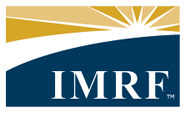| Topic: | Employers |
| Date: | 2/15/1990 |
| Status: | Active |
Health insurance, life insurance, sick leave, vacation leave, disability benefits, worker’s compensation, unemployment insurance and retirement pensions are fringe benefits traditionally offered to employees by employers as part of a total compensation package. In Illinois, public pension plans were created to provide income protection to public employees and their families. The role of the Illinois Municipal Retirement Fund (IMRF) has, by legislative design, always been limited to income replacement when the employee was no longer working because of retirement, disability or death.
Many IMRF employees are covered by employer-sponsored health insurance programs. Recognizing that some members are not covered while actively employed, and that even more are not included in an employer-sponsored group once they retire, IMRF has acted to find a program to provide such coverage and has endorsed legislation to that end.
In 1989, a two-part program was made available to IMRF employers. For employers with more than 75 insured employees, health insurance was made available through Mutual of Omaha. For employers with less than 75 insured employees, a plan was developed through the Illinois State Chamber of Commerce with underwriting by a number of insurance companies. In both cases, continuing coverage could be made available to retirees.
A second occurrence in 1989 was the passage of House Bill 1819, effective July 1, 1990, which also addresses the needs of local government by the creation of a separate local government health insurance fund administered by the Illinois Department of Central Management Services.
As a result of the foregoing, the problems surrounding health insurance coverage for local government employees are no longer problems of availability, but rather problems of cost and coverage. In this and upcoming legislative sessions, there will be a temptation to look at the assets of IMRF, including investment earnings thereon, as a source to fund in whole or in part the insurance needs of a fraction of its members. Any special legislation which proposes to take IMRF assets or investment earnings thereon to subsidize employer fringe benefits disperses IMRF’s economic capacities and endangers its long-term ability to provide income replacement for all its members.
The redeployment of IMRF assets will simply increase the long-term cost of IMRF to all participating employers.
While the Board of Trustees of IMRF is sympathetic with its members who do not have employer-sponsored health insurance, it opposes any use of trust funds to subsidize in whole or in part the insurance coverage of its participants (active or retired) or their beneficiaries.

